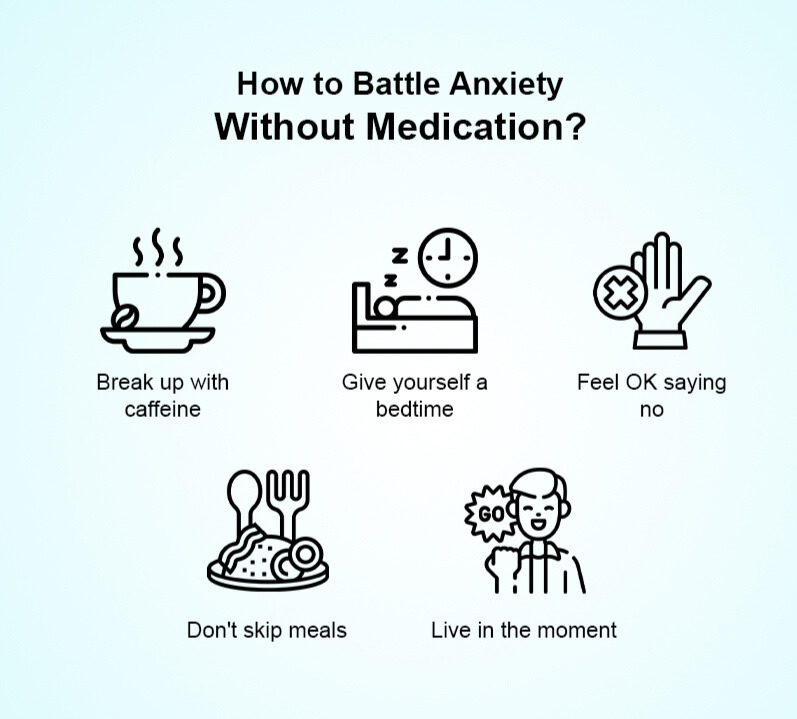Buy Shrooms, CBD, LSD, Magic Mushrooms
Techniques to Reduce Anxiety Without Medication
Anxiety can feel overwhelming — racing thoughts, tightness in the chest, irritability, or a persistent sense of dread. While medications can be effective in managing anxiety for some people, others prefer or need alternative methods. The good news is that there are many science-backed, non-medication techniques to reduce anxiety and restore mental balance.
Here’s a comprehensive guide to practical, effective ways to manage anxiety naturally — helping you feel more in control, focused, and at peace.
1. Practice Deep Breathing Techniques
🌬️ Why It Works:
Deep breathing activates the parasympathetic nervous system, which signals your body to calm down. Shallow or fast breathing, common during anxiety, sends danger signals to the brain.
✅ How to Do It:
Box Breathing:
- Inhale for 4 seconds
- Hold for 4 seconds
- Exhale for 4 seconds
- Hold again for 4 seconds
Repeat for 2–3 minutes
This technique slows your heart rate and brings immediate relief from panic or nervous energy.
2. Use Mindfulness and Meditation
🧘 Why It Works:
Mindfulness helps you stay grounded in the present moment, rather than getting swept away by anxious thoughts about the past or future.
✅ How to Start:
- Use guided meditation apps like Headspace, Calm, or Insight Timer
- Practice 5–10 minutes daily of mindful breathing or body scan meditation
- Bring mindfulness into everyday activities — washing dishes, walking, or eating
With regular practice, mindfulness trains your brain to respond rather than react to stress.
3. Move Your Body Regularly
🏃 Why It Works:
Exercise reduces levels of the body’s stress hormones, like cortisol, and boosts endorphins — chemicals that act as natural mood lifters. It also improves sleep and self-esteem, both key in anxiety management.
✅ Try:
- A 30-minute walk in nature
- Yoga or stretching sessions
- Dance, swimming, or cycling
Even 10–15 minutes of light movement daily can make a noticeable difference in your mood.
4. Limit Caffeine and Sugar Intake
☕ Why It Works:
Caffeine and sugar can mimic or intensify anxiety symptoms like jitteriness, racing thoughts, and sleep disruption.
✅ How to Adjust:
- Switch to herbal teas or decaf options
- Avoid energy drinks and sugary snacks, especially in the afternoon
- Balance blood sugar with high-protein and high-fiber meals
Keeping your energy and mood stable helps reduce vulnerability to anxious spikes.
5. Journaling to Release Mental Clutter
📓 Why It Works:
Writing helps process emotions, clarify thoughts, and reduce mental overload. It also creates space between you and your worries.
✅ Try These Prompts:
- “What am I anxious about right now?”
- “What’s within my control?”
- “What small step can I take today?”
- Gratitude journaling: list 3 things you’re thankful for each morning or night
Making journaling a habit can turn chaos into clarity.
6. Create a Calming Environment
🕯️ Why It Works:
Your physical surroundings influence your mental state. A messy, noisy, or overly stimulating space can elevate stress and make it harder to feel calm.
✅ Simple Changes:
- Declutter your room or workspace
- Use calming scents like lavender, chamomile, or sandalwood
- Add elements like soft lighting, plants, or calming music
Your environment should reflect the peace you want to feel inside.
7. Practice Progressive Muscle Relaxation (PMR)
🧠 Why It Works:
This technique helps release physical tension stored in the body — a common symptom of anxiety — and increases body awareness.
✅ How to Do It:
- Start at your feet and move upward
- Tense each muscle group for 5 seconds, then release for 10 seconds
- Focus on the sensation of letting go
PMR is especially effective before sleep or during anxious moments.
8. Limit News and Social Media Intake
📱 Why It Works:
Constant exposure to bad news, social comparison, and digital overload can fuel anxiety. Setting boundaries helps protect your mental peace.
✅ Try:
- Designate “screen-free” times each day
- Turn off non-essential notifications
- Unfollow accounts that trigger anxiety or negativity
- Replace doomscrolling with reading, nature, or hobbies
Protect your mind like you would your body — don’t let harmful content drain your energy.
9. Establish a Consistent Sleep Routine
😴 Why It Works:
Poor sleep worsens anxiety by affecting mood regulation and cognitive function. Good sleep hygiene supports emotional resilience.
✅ Sleep Hygiene Tips:
- Go to bed and wake up at the same time every day
- Avoid screens an hour before sleep
- Keep your bedroom dark, quiet, and cool
- Try calming rituals like reading, journaling, or herbal teas
Aim for 7–9 hours of quality sleep each night to help your brain and body recover.
10. Talk to Someone You Trust
🤝 Why It Works:
Sharing your feelings can provide emotional relief and a fresh perspective. You don’t have to face anxiety alone.
✅ Options:
- Call a friend or family member
- Join a support group (online or local)
- Consider talking to a therapist or counselor — even without medication, therapy is highly effective
Connection is a powerful antidote to anxiety.
Final Thoughts: You Can Manage Anxiety Naturally
Anxiety doesn’t have to control your life. With the right tools and consistency, you can build habits that calm your nervous system, quiet your mind, and help you feel more grounded each day.
While severe anxiety may require professional support, these natural techniques offer an empowering way to take back control — one breath, one choice, one calm moment at a time.

